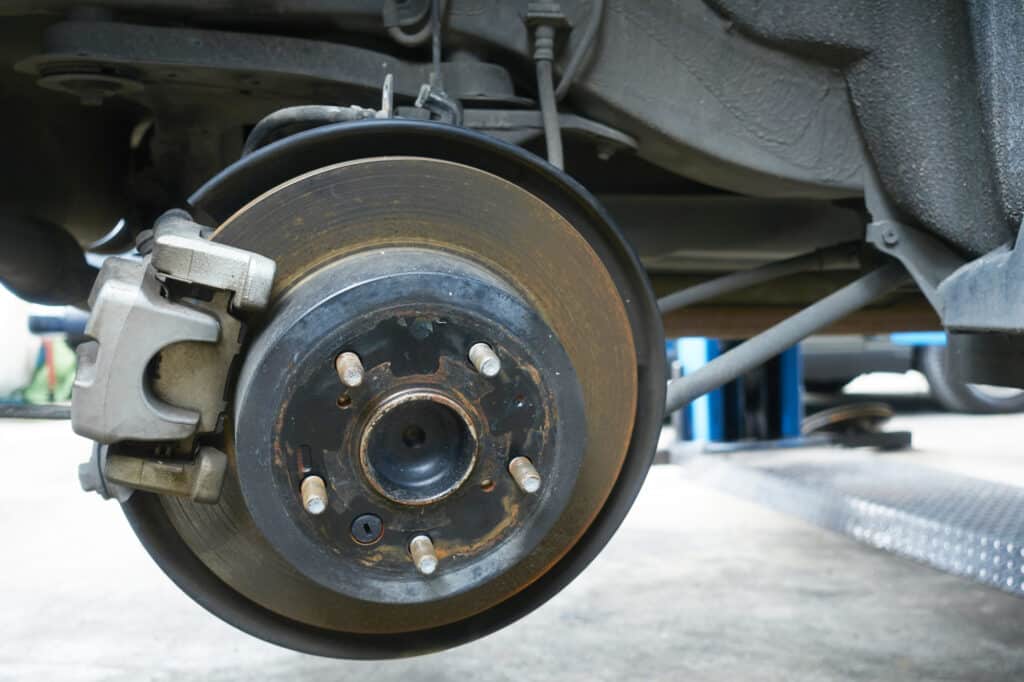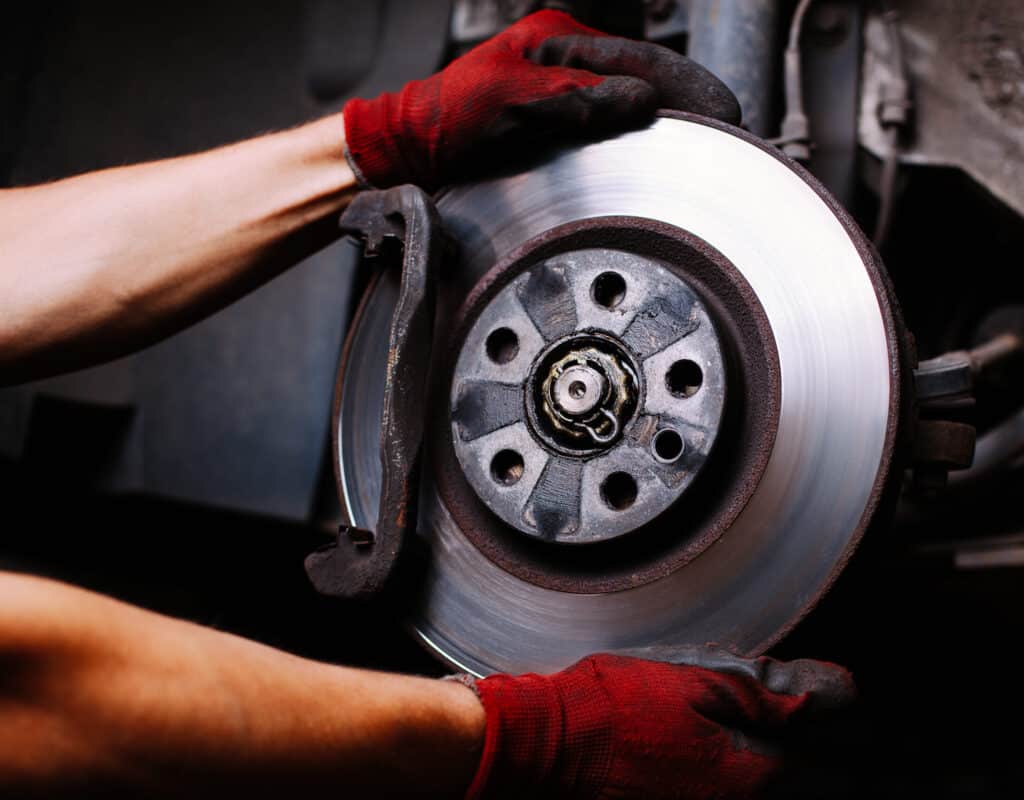Understanding the Importance of Routine Brake Inspections
Ensuring your vehicle’s brakes are in top condition is non-negotiable for your safety and the safety of others on the road. Routine brake inspections don’t just protect you; they also extend the life of your car. At Pyle Automotive, we take pride in offering reliable, expert brake inspections to help you drive with confidence.
This post will guide you through everything you need to know about routine brake inspections—their importance, frequency, what they involve, and the unique advantages of trusting Pyle Automotive for this essential service.
What Are Routine Brake Inspections?
Routine brake inspections are a critical component of preventative vehicle maintenance. These assessments are designed to meticulously evaluate every aspect of your car’s braking system, ensuring it operates at peak performance. During an inspection, our experienced technicians examine key components such as brake pads, rotors, calipers, brake fluid, and other vital elements. This comprehensive check ensures that every part is functioning as it should and is free from wear or damage that could compromise safety.
Why are these inspections so important? Your brakes are the most essential safety feature on your vehicle—they’re your primary defense when it comes to avoiding accidents on the road. Daily driving inevitably leads to wear and tear, which, if left unchecked, can escalate into serious safety hazards or costly repairs. Regular brake inspections help identify potential issues early, giving you peace of mind and preventing unexpected breakdowns or unsafe situations.

Brake Repair Service
Why Are Routine Brake Inspections a Must?
Your vehicle’s braking system is more than just a feature; it’s a lifeline. Neglecting routine brake inspections can lead to critical safety risks and expensive repairs. Here’s why making them a consistent part of your car care routine is essential:
- Safety Above All Else: Faulty brakes endanger not just you and your passengers, but everyone sharing the road. A single failure could lead to life-altering consequences. Routine inspections are a vital safety measure, helping identify wear and tear before it compromises your brakes’ reliability. By addressing issues early, you significantly reduce the risk of sudden failures and accidents, offering peace of mind every time you hit the road.
- Detect Problems Early, Save Money: Ignoring minor brake issues is a recipe for escalating costs. A worn brake pad, when left unchecked, can quickly damage the rotors, resulting in far more expensive repairs. Regular inspections help you catch these smaller, fixable problems early on, saving you hundreds—or even thousands—in unnecessary expenses. Maintaining your brakes isn’t just a safety investment; it’s a financial one too.
- Extend Your Vehicle’s Lifespan: A well-maintained braking system supports the longevity of your vehicle. Neglect can cause strain on other components, leading to faster wear and eventual breakdowns. Proper care ensures a smoother ride, consistent performance, and maximum value from your vehicle. Regular inspections extend not just the lifespan of your brakes but that of your entire car.
How Often Should You Get Your Brakes Inspected?
To keep your vehicle safe and running smoothly, it’s essential to inspect your brakes regularly. On average, experts recommend a brake inspection every 6 months or 6,000 miles—whichever milestone comes first. That said, this guideline can shift based on several key factors linked to how and where you drive.
Factors That Affect Your Brake Inspection Schedule:
- Driving Habits: Are you often caught in stop-and-go traffic or tend to brake aggressively? These common habits accelerate brake wear, meaning inspections should happen more frequently to ensure your safety.
- Vehicle Type and Terrain: Heavy vehicles, hilly terrains, or rugged road conditions increase the strain on your brakes. Drivers facing these challenges might need to monitor their brake health more closely than those sticking to flat, city streets.
Neglecting regular brake inspections can lead to unexpected—and potentially costly—repairs, as well as reduced safety on the road. If you’re unsure about the best schedule for your specific vehicle, don’t worry. At Pyle Automotive, our skilled technicians can create a tailored brake inspection and maintenance plan based on your unique driving habits and needs.
What Does a Routine Brake Inspection Involve?
At Pyle Automotive, our brake inspection process is thorough, methodical, and backed by advanced technology. Here’s what you can expect when you bring your car in for a professional check-up with us:
- Brake Pad and Rotor Inspection: We assess the wear on your brake pads and rotors to determine whether replacements are needed.
- Brake Fluid Check: Our technicians test the brake fluid levels and quality to ensure there’s no contamination or degradation affecting your braking performance.
- Full Component Review: This includes calipers, hoses, lines, and other critical parts of the system to check for leaks, corrosion, or damage.
With each inspection, our certified technicians use precision equipment to provide accurate diagnostics, ensuring your brakes meet our high safety standards.
Signs That Your Brakes Need Inspection
Your brakes are one of the most critical safety features of your car, and paying attention to warning signs can mean the difference between avoiding a mishap and facing costly repairs down the road. If your vehicle is exhibiting any of the following symptoms, don’t wait until your next scheduled service—your brakes might require immediate attention.
- Strange Noises: Notice any squealing, grinding, or clicking sounds when you brake? These unusual noises could be a signal that your brake pads are worn out and need replacement. Ignoring these sounds can lead to further damage, such as scoring on your rotors, which will only add to your repair bill.
- Vibrations or Pulsations: If you feel a vibration or pulsation in the brake pedal when you press it, this could be a sign of warped rotors or uneven wear on your braking components. These issues reduce your braking efficiency and could jeopardize your car’s stopping power in critical moments.
- Spongy or Unresponsive Brake Pedal: Does the brake pedal feel softer or spongy under your foot? Reduced responsiveness or a soft pedal is often an indication of a problem with the brake fluid, air in the brake lines, or even a failing master cylinder. Never ignore such changes as they directly affect your ability to stop safely.
- Brake Warning Light: Your dashboard warning lights are there for a reason. If your brake warning light is illuminated, it’s a clear indicator that your braking system needs attention. This may point to anything from low brake fluid to an issue with the anti-lock braking system (ABS).
The Pyle Automotive Advantage
Your safety on the road begins with reliable brakes, and at Pyle Automotive, we take that responsibility seriously. Here’s what makes us the trusted choice for brake inspections:
- Certified Brake Technicians: Our team of certified technicians brings years of experience and unmatched expertise to every inspection. From compact cars to heavy-duty vehicles, we’ve worked on it all. When you trust us with your brakes, you’re putting your vehicle in the hands of professionals who know how to keep you safe.
- State-of-the-Art Technology: Brakes are a critical safety system, and precision matters. That’s why we rely on advanced diagnostic tools to thoroughly analyze your braking system. This cutting-edge technology allows us to detect even the smallest issues, ensuring accurate assessments and optimal safety.
- Customer-Centric Philosophy: You’re not just a customer at Pyle Automotive—you’re part of our community. Your safety and satisfaction come first, which is why we take the time to perform comprehensive inspections and explain our findings in detail. Transparency and trust are at the heart of everything we do.
When you choose Pyle Automotive, you’re choosing a team dedicated to expertise, safety, and innovation. From top-tier technicians to advanced tools and unmatched customer care, we go above and beyond to protect what matters most—your safety on the road.

Vehicle Brake Maintenance
Prioritize Your Safety with Routine Brake Inspections
Your vehicle’s braking system is vital to your safety and that of everyone on the road. By making routine brake inspections a priority, you can prevent potential hazards, reduce the likelihood of costly repairs, and ensure your brakes are always performing at their peak. At Pyle Automotive, we are committed to keeping you safe with our meticulous inspections and state-of-the-art technology. Regular attention to your brakes can provide peace of mind and enhance your vehicle’s longevity—don’t wait for warning signs to take action. Schedule your brake inspection today and drive with confidence knowing your safety is in expert hands.
FAQs About Brake Inspections
Q: How long does a brake inspection take?
A standard brake inspection typically takes 30-60 minutes, depending on your vehicle and the condition of its braking system.
Q: Are brake inspections expensive?
Brake inspections are affordable and often included in routine maintenance packages. Our rates at Pyle Automotive are competitive, and we always discuss costs upfront.
Q: Can I inspect my brakes at home?
While you can check for visible wear or obvious damage, only a professional inspection can identify deeper issues or hidden risks.
Have more questions? Contact Pyle Automotive, and our experts will address all your concerns.
https://www.google.com/maps?cid=6320892374453977035

